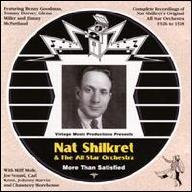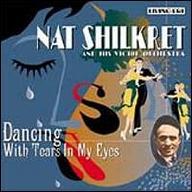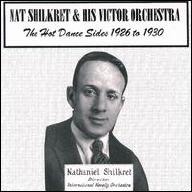In 1924, he joined RCA Victor as director of the company's light music division, and subsequently founded the Victor Salon Orchestra, also sometimes called the Victor Orchestra, and he also led bands with names such as the Novelty Orchestra and Shilkret's Rhythm-Melodists. He became one of the top pop bandleaders of the late '20s and early '30s, his credits including hot dance numbers such as Honey Bunch, Sweet Thing, and Zulu Wail, and pop numbers such as Ain't She Sweet and Me and My Shadow; he also composed songs as a lyricist. In his own time, however, he was best known as a bandleader and he rivaled the popularity of Paul Whiteman going into the 1930s -- indeed, their rivalry extended to the disputed credit of the first recording of Gershwin's Rhapsody in Blue, which bore Whiteman's name but, according to The Big Bands Database Plus, was actually the work of Shilkret, when Whiteman and Gershwin got into a dispute.
His success faltered in the early '30s, and he moved into radio in the mid-'30s and later out to Hollywood, where he joined the film industry as a composer -- usually credited as Nathaniel Shilkret -- working on movies such as the Laurel Hardy operetta vehicle #Swiss Miss, and their adaptation of #The Bohemian Girl. Shilkret later joined CBS as music director, during the declining postwar years of radio. He passed away in 1982, well into his eighties, after a comfortable retirement. In the modern recording era, Shilkret is principally associated with nostalgia releases, but in 2004, his rendition of Ravel's Bolero -- done as a foxtrot, no less, with the Victor Orchestra -- was included on BMG's Ravel's Greatest Hit: The Ultimate Bolero, as one of the more unusual interpretations of the piece; it was unusual enough in July of 2004 to earn the bandleader and composer his first mention in The New York Times in many decades. ~ Bruce Eder, Rovi



















